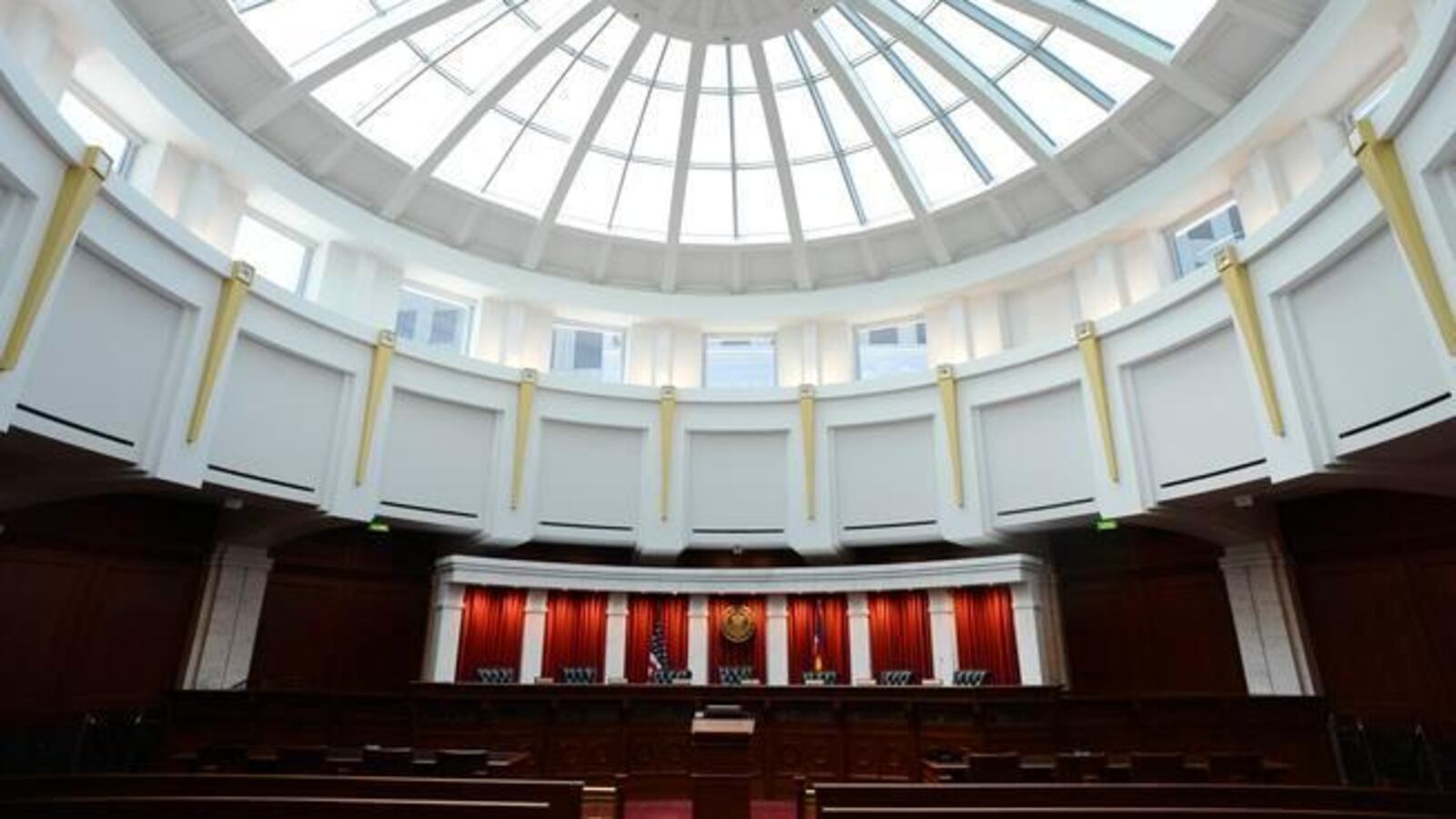Are good veteran teachers still guaranteed jobs in Colorado, provided they don’t mess up?
The Colorado Supreme Court heard arguments Wednesday on that issue and others related to a landmark 2010 state law that changed the rules for teacher evaluations and assignments.
Lawyers for Denver Public Schools squared off against lawyers representing individual teachers in two separate lawsuits. One case was brought on behalf of seven current and former DPS teachers. It challenges a provision of the 2010 law that allows school districts to, under certain circumstances, put effective teachers who’ve earned job protections on unpaid leave.
The other case was filed by a single teacher, Lisa Johnson, who was put on unpaid leave.
In both cases, lawyers for DPS argued that putting experienced, effective teachers on unpaid leave is not the same as firing them — and thus doing so doesn’t violate their due process rights.
But lawyers for the teachers said unpaid leave is essentially “an end run” around those rights.
To understand both lawsuits, it helps to have some background on the 2010 law, known as Senate Bill 191. It did several things, including change the way teachers earn “non-probationary status,” which affords them job protections. To earn that status, teachers must now have three years of effective ratings instead of just three years of employment.
Earning that status is desirable because non-probationary teachers can only be fired for a limited number of reasons, including insubordination and unsatisfactory performance. In addition, non-probationary teachers are entitled to a hearing before being fired.
The 2010 law also effectively eliminated a practice known as “forced placement.” Before the law, teachers who lost their jobs not for cause but due to circumstances such as a decrease in student enrollment were assigned to open positions at other schools.
DPS officials didn’t like forced placement because most teachers were placed at low-income schools, which they said led to the neediest kids being taught by teachers who didn’t choose to be there. So after Senate Bill 191 passed, DPS changed its policy. The district now gives teachers who lose their positions temporary assignments with the expectation that they will look for “mutual consent” positions, meaning a school’s principal agrees to hire them.
If a teacher doesn’t find a mutual consent position within 18 months, he or she is placed on unpaid leave as per Senate Bill 191. The teacher is welcome to continue looking for jobs in DPS and is entitled to his or her previous salary and benefits if hired.
Since Senate Bill 191 went into effect, at least 1,113 non-probationary DPS teachers have lost their positions due to a decrease in student enrollment, the closure of a school or other similar circumstances listed in the law, according to data the district provided at Chalkbeat’s request.
The majority of them have found mutual consent positions. Sixty-two teachers are currently on unpaid leave because they were unable to do so, according to DPS.
However, that number doesn’t include teachers who resigned or retired rather than be put on unpaid leave. That information is difficult to gather, a district spokesman said, but DPS did tally some numbers in response to an open records request the Denver teachers union submitted in February. As best the district could tell as of earlier this year, 39 non-probationary teachers who lost their positions between 2010 and 2014 resigned and seven retired.
On Wednesday, a lawyer for the teachers who brought the lawsuit argued that state law has historically afforded teachers a “basic bargain:” if they work for three years and are asked to come back for a fourth, they’re entitled to job protections. Lawmakers were wrong to alter that under Senate Bill 191, attorney Philip Hostak told the seven justices.
But DPS’s lawyer pointed out that the historical idea of tenure no longer exists — and hasn’t since lawmakers stripped the word from state law in 1990. “There is no indication in the legislation itself … that these folks are permanent teachers,” said attorney Eric Hall.
Pushing back on Hostak’s argument, Hall said lawmakers can amend laws however they see fit — and in the case of Senate Bill 191, they added the mutual consent provision and unpaid leave.
A lawyer for Johnson also challenged that provision and argued that Johnson shouldn’t be subject to it because she lost her position for a reason not listed in Senate Bill 191.
“The legislature tells us exactly which teachers can be displaced,” said attorney Eric Harrington.
However, the lawyer representing DPS in the Johnson case, Jonathan Fero, argued that the reasons listed in the law aren’t exhaustive and mutual consent applies to all teachers.
The lawyers did not debate the reason Johnson lost her position except to say they disagreed on the facts but that those facts aren’t an issue for the Supreme Court to decide.
The justices typically take months to issue an opinion.

